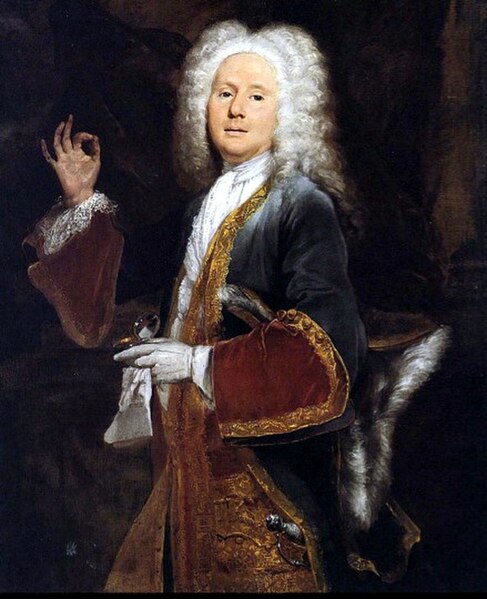The Relapse, or, Virtue in Danger is a Restoration comedy from 1696 written by John Vanbrugh. The play is a sequel to Colley Cibber's Love's Last Shift, or, The Fool in Fashion.
John Vanbrugh (1664–1726), author of The Relapse, by Godfrey Kneller
Young Colley Cibber as Vanbrugh's Lord Foppington, "brutal, evil, and smart".
Trickster subplot in The Relapse: Tom Fashion, pretending to be Lord Foppington, parleys with Sir Tunbelly Clumsey in a 19th-century illustration by William Powell Frith.
"Restoration comedy" is English comedy written and performed in the Restoration period of 1660–1710. Comedy of manners is used as a synonym for this. After public stage performances were banned for 18 years by the Puritan regime, reopening of the theatres in 1660 marked a renaissance of English drama. Sexually explicit language was encouraged by King Charles II (1660–1685) personally and by the rakish style of his court. Historian George Norman Clark argues:The best-known fact about the Restoration drama is that it is immoral. The dramatists did not criticize the accepted morality about gambling, drink, love, and pleasure generally, or try, like the dramatists of our own time, to work out their own view of character and conduct. What they did was, according to their respective inclinations, to mock at all restraints. Some were gross, others delicately improper.... The dramatists did not merely say anything they liked: they also intended to glory in it and to shock those who did not like it.

Nell Gwynn was one of the first actresses and the mistress of Charles II.
John Vanbrugh, The Provoked Wife: "These are good times. A woman may have a gallant and a separate maintenance too."
The Rover by Aphra Behn is now a repertory favourite.





